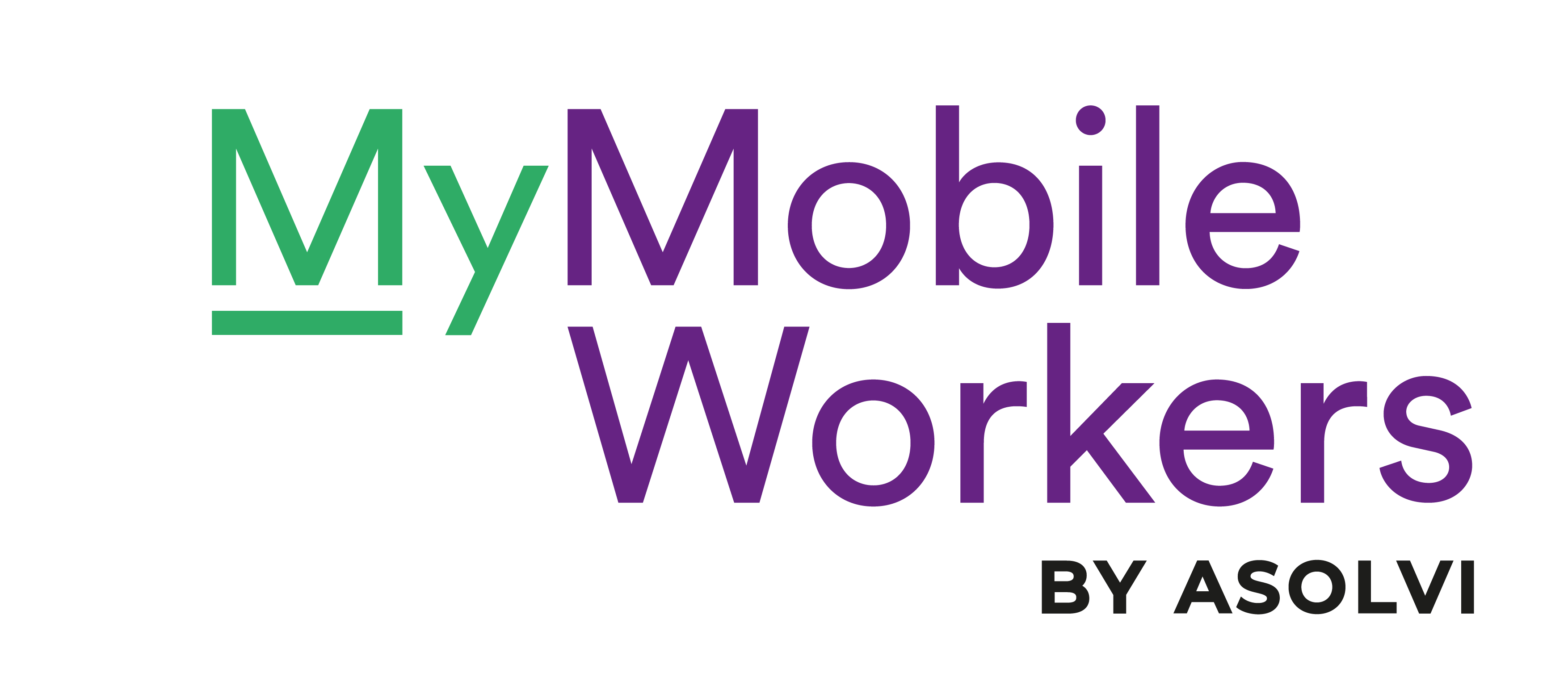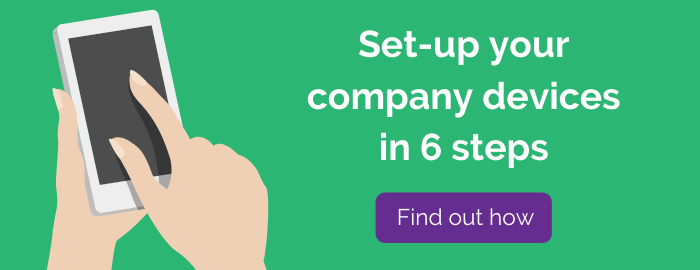
Mobile devices are rapidly becoming the stock tools of the trade for a new generation of mobile workers.
They are transforming the way we’re able to manage and track fieldworkers - creating faster, more fluid and streamlined work operations.
But they also pose some fresh management challenges.
This includes the task of keeping on top of the way workers access and use the data they need to do their daily duties.
A failure to get to grips with this can create some serious problems with exorbitant bills and data caps helping to stifle a team’s productivity.
Here’s a look at how mobile data policies are helping to handle the challenge:
So what is a mobile data policy?
It’s a company policy which sets out the ways that employees within a mobile workforce are permitted to access and use the data they need to do their duties. It’s sometimes referred to as an Acceptable Use Policy (AUP).
Employers will often ask workers to sign an AUP agreement to show that they have understood the various rules and agree to abide by them.
A mobile data policy often forms part of a wider policy which covers the general use of mobile devices. This will include areas such as password/log-in protocols and what to do if devices are lost or stolen.
Does my business need a mobile data policy?
There’s no legal requirement but it’s definitely advised. An effective policy can help to reduce data costs, minimise compliance risks, reduce employee disputes and help to boost workforce productivity.
What should a mobile data policy cover?
- How to access data
- What data can be accessed
- Data limits and caps
The scope of a policy will depend on the specific set-up of your operation. It will vary depending on whether you provide employees with dedicated devices or allow them to use their own phones.
The more control you have over devices within a mobile workforce, the less reliant you are on policy adherence. A working device can be set-up so that company limits and restrictions are ‘baked’ into the way the phone is set-up.
Policies will also have to reflect the specific data plan that a company uses. But there are some general areas that policies should cover:
How to access data
This needs to outline the methods that an employee can use to access data during their working duties. This is likely to include access via WiFi, a company-provided SIM card or by reimbursing the user for personal data costs.
Making sure that available WiFi connections are always prioritised can significantly cut costs for mobile workers who are frequently located in an office or depot.
What data can be accessed
This sets out the ways that field workers can access data during their working duties.
This could be a strict policy which prohibits any access to data which falls outside of work-related usage. Or it can be a more relaxed set of guidelines which promotes a more general common-sense approach.
It should provide clear guidance on the separation of data that is accessed for personal use and work-related data that is required to complete their working duties.
Generally, the biggest drain on data resources comes from any kind of video and audio streaming services. It’s for this reason that many businesses choose to block or ban the use of sites such as YouTube and Facebook.
Data management tools allow a business to remotely control what’s available via a device. Phones can be set-up to block anything which isn’t on an approved ‘whitelist’ of work-related apps and websites.
Data limits and caps
Some company data plans will limit the amount of data that can be accessed over a set period. If these limits are breached, it can impose extra costs or throttle the availability of data.
A mobile data policy should provide clear information on what these limits are and how users can maximise their data efficiency. Most modern devices allow data usage to be monitored with alerts and notifications to warn when limits are approaching.
It’s worth noting that even when mobile plans are sold as ‘unlimited’, they will usually impose some kind of restrictions on data usage.
How do you communicate a mobile data policy?
Providing clear guidelines on the use of mobile devices should be a part of the new starter process. The policy should be written in a clear and concise form and made easily accessible for workers, ideally via their mobile devices.
The most effective policies are those which are integrated into working operations. Mobile devices can be set-up to reflect the policy, limiting access to non-work related apps and websites.
Digital workforce management systems can also provide mobile workers with on-screen notifications and policy reminders.
Photo by Benjaminrobyn Jespersen on Unsplash


